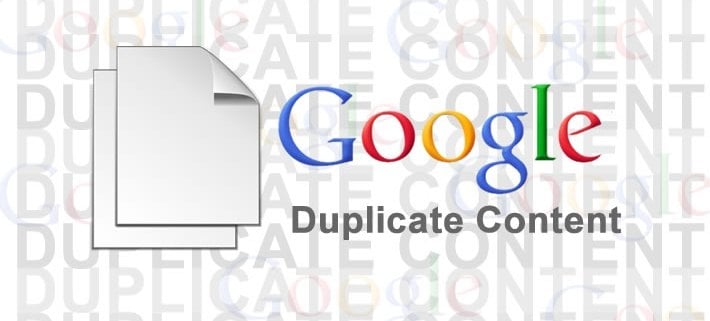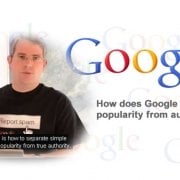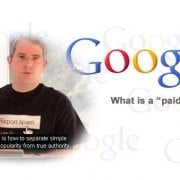Google and Duplicate Content
Duplicate Content: Not a Penalty but It Sure Does Feel like Feels like One
For many webmasters, duplicate content is an issue. Google has ranking algorithm filters that act very similarly to a penalty even though you got no penalty for having duplicate content on your website. Google’s Gary Illyes confirmed at SMX last week that duplicate content does not influence the other pages on your website.
So what is the issue with duplicate content?
Duplicate content will not rank on Google as long as there is another more popular page with the same or similar content. A website with multiple pages that contain the same content, can be difficult for Google to pick the right version.
That version of the content will be displayed in Google’s search results and the other versions will be ignored or hidden. Most webmasters think this feels like a penalty because other websites that have the same content are displayed in Google’s search results instead of their own.
What is Google’s take on duplicate content?
Google does not consider duplicate content as spam:
“Duplicate content on a site is not grounds for action on that site unless it appears that the intent of the duplicate content is to be deceptive and manipulate search engine results.”
They also admit that duplicate content can be a cause for ranking problems:
“In rare situations, our algorithm may select a URL from an external site that is hosting your content without your permission. If you believe that another site is duplicating your content in violation of copyright law, you may contact the site’s host to request removal.”
Mobile versions of regular web pages, by printer-only versions of web pages, by store items that are
linked via multiple distinct URLs, etc. can cause legitimate duplicate content.
Avoiding duplicate content issues
Several things that you can do to avoid duplicate content problems:
- Use 301 redirects to redirect visitors to your correct web pages.
- Always use the same link, for example, do not link to /page, /page/index.htm and /page/.
- Use country-specific domains for country-specific content. Use domain.uk instead of domain.com/uk.
- Syndicate your content with care. If the websites that show your content are more popular than your own websites, they will be shown in Google’s search results.
- Don’t use long boilerplate texts on all pages. Better link to a page with the details.
- Avoid similar pages. If you have several pages with similar content, consider creating them into one page.
Having duplicate content can lead to ranking problems on Google. Although there’s no official duplicate content penalty, Google’s filters for duplicate content can give a very similar effect.
Contact Team Discovery for help with your content.








